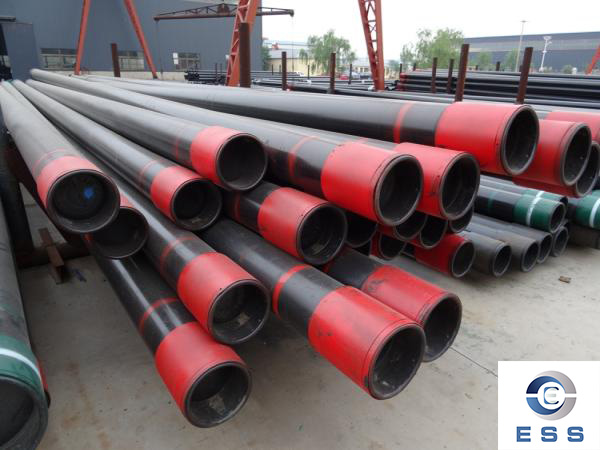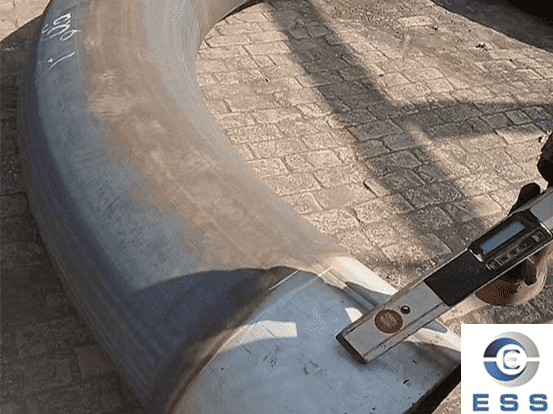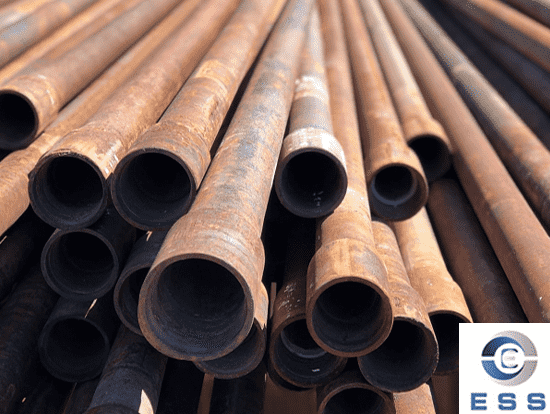Uses of casing: oil and gas field

Casing pipe refers to the process of drilling oil wells. During the drilling process, the casing pipe is gradually inserted from the inner tube to the outside at the bottom of the drilling pipe, thus forming an interconnected oil well annulus pipeline system. It is usually made of seamless steel pipe.
The field of exploration and production of natural gas and oil is extremely complex. However, some things are simple, and one of them is the key role that casing pipe plays in this context. These components are indispensable and vital in terms of the success and integrity of oil wells. Their importance in this world needs to be studied in depth, and the various functions they play in this field need to be clarified.
The role of casing in the oil and gas industry
1.Reinforce the well wall: Casing pipe can reinforce unstable well walls to prevent collapse during drilling or production.
2.Isolate the formation: Casing pipe can isolate different geological layers, such as water layers, gas layers, and oil layers, to ensure safety and efficiency during drilling and production.
3.Control pressure: Casing pipe helps control formation pressure and prevent excessive pressure from causing blowouts or well wall ruptures.
4.Guiding function: In directional drilling, casing pipe can serve as a guide to help the drill bit drill along a predetermined trajectory.
5.Establishing a channel: Casing pipe provides a channel for oil and gas from the underground reservoir to the ground, allowing oil and gas to flow and be produced.
6.Facilitating operations: The lowering of casing pipe facilitates subsequent cementing, perforating, fracturing and other operations.
7.Environmental protection: Casing pipe helps prevent drilling fluid and other pollutants from entering the groundwater layer and protect the environment.
8.Suspending load: Casing pipe can suspend downhole equipment such as packers, production strings, etc., to disperse the load.
9.Long-term stability: Casing pipe ensures the long-term stability and production efficiency of oil and gas wells.
10.Adapting to complex conditions: In high pressure, high temperature or corrosive environments, casing pipe can provide necessary protection and isolation.
11.Safety barrier: In oil and gas wells, casing pipe acts as a safety barrier to prevent cross-contamination between different formations.
12.Facilitating monitoring and maintenance: The lowering of casing pipe facilitates the monitoring and maintenance of oil and gas wells, ensuring the safety and continuity of the production process.
Providing structural support is one of the main functions of casing pipe in this particular field. They also provide isolation and containment by acting as a barrier between various geological formations. If the casing pipe is sealed and installed correctly, they can act as a barrier, thereby preventing blowouts from occurring. They also play an important role during the completion phase.
These pipes are made of materials that are extremely corrosion resistant. They also support various downhole instruments and tools used in the industry for logging, production, and testing, which is why they are such an active part of the industry. The use of casings in the industry has also become mandatory these days as part of the rules and regulations that govern the industry. Considering how well these pipes perform in such a demanding industry, it is no wonder that well casings will be a great choice for your home or property, especially when you purchase them from Eastern Steel.
These pipes are the unsung heroes of the oil and gas industry as they provide a number of benefits. They provide structural support, containment, and isolation, and play a variety of other roles in this particular case, such as ensuring that the well is safe and completed correctly in terms of construction. Casings are an integral part of oil and gas production and exploration work, and the quality of their design and construction directly relates to the safety and productivity of the wells. They are also environmentally friendly and beneficial to the workers who work in these spaces.













 Eastern Steel Manufacturing Co.,Ltd not only improve product production and sales services, but also provide additional value-added services. As long as you need, we can complete your specific needs together.
Eastern Steel Manufacturing Co.,Ltd not only improve product production and sales services, but also provide additional value-added services. As long as you need, we can complete your specific needs together.










